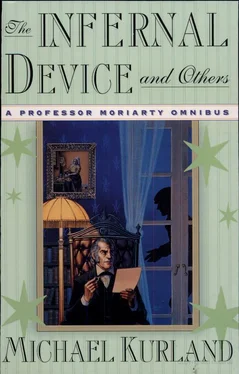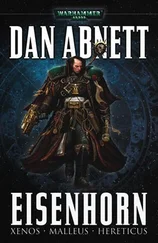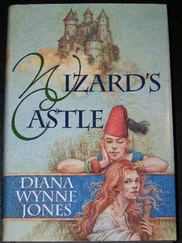"Ingenious," Barnett said.
"Indeed so," Lord East agreed. "You have to get up very early in the morning to pull the wool over my eyes!"
SEVENTEEN — THE CANDLE
Oh, East is East, and West is West, and never the twain shall meet,
Till Earth and Sky stand presently at God's great judgment seat;
But there is neither East nor West, Border, nor Breed, nor Birth,
When two strong men stand face to face, though they come from the ends
of
the earth!
— Rudyard Kipling
Benjamin Barnett arose and packed his kit-bag at five o'clock the next morning. The earliest train to London left Plymouth at 6:08, and he had the whole first-class compartment to himself. He stretched out across the seat and caught an additional two hours' sleep, and then used the next three hours to go over his notes and write them up into a comprehensive account and analysis of Lord East's philosophy of acquiring and guarding Indian treasure. By the time the train arrived at Waterloo Station, he had two versions of the Lord East treasure story prepared, one for the American News Service, and one for Professor James Moriarty.
"Hm," Moriarty said, reading Barnett's account of the interview, "it is as I assumed. Lord East does not venture into the unknown. He continues to use the same rituals to safeguard his hoard that he practiced while he was acquiring the loot in India."
"I imagine one comes to trust those techniques that have worked for one in the past," Barnett commented.
"Easily understandable and very human," Moriarty admitted. "I certainly cannot fault him for that. Furthermore, it does simplify my task."
"If you say so," Barnett said. "Although I can't see how you intend to get near the train. It's never going to stop from the time it leaves Plymouth until it reaches London, not once. And if you somehow do manage to halt it, a regiment of very large guardsmen with loaded rifles will have the train surrounded in seconds, and a troop of light horse will be leaping off of their wagons to chase anyone who appears in their way."
"The military escort will not affect my plan one way or the other," Moriarty said. "It makes no difference whether there is a company of men or a field army guarding the treasure, it shall be removed."
"Are you saying that the treasure will leave Plymouth, but it won't make it to London?" Barnett asked.
Moriarty smiled. "To paraphrase a former Lord of the Admiralty," he said, "I don't say the treasure will not arrive in London, I merely say it won't arrive in that train."
Mr. Maws opened the study door. "Beg pardon," he said. "There is a delegation to see you, Professor. Six gentlemen. They have no cards."
Moriarty looked up. "Gentlemen, you say, Mr. Maws?"
"In a manner of speaking, Professor. Gentlemen of the night, gentlemen of the mask, gentlemen of the Hidden Ways. I believe all these appellations have been applied to our guests, Professor."
Barnett smiled at the butler. "Well, Mr. Maws, you astound me," he said. "You have hidden depths."
"Yeah? 'Oo says?" Mr. Maws demanded, his face remaining expressionless.
"Do we know any of these gentlemen, Mr. Maws?" asked Professor Moriarty.
"Yes, sir," Mr. Maws replied. "There's the Snoozer, and Twist, and Upper McHennory, and the Twopenny Yob, and Colonel Moran, and Percy the Painter."
"Well, well," Professor Moriarty said, rubbing the side of his nose, "an impressive gallery of rogues. What could have brought them all together; and what on earth could have brought them here to see me?" He adjusted his pince-nez glasses. "Well, the best way to find out is to bring them in here and let them tell me. Mr. Maws, if you would."
"Would you like me to leave?" Barnett asked, as Mr. Maws silently closed the door behind him.
"Not at all," Moriarty said. "You already know one or two of these gentlemen, I believe. You would be doing me a favor if you sat quietly in the corner and, ah, observed."
"My pleasure, Professor," Barnett said, and he was speaking no less than the truth. It sounded like a fascinating meeting from any point of view. "Let's see — Twist I've met, of course; head of the Mendicants' Guild. I'm an honorary member, I believe."
"That's so," Moriarty said. "And the Snoozer's a sneak thief. Got his name from his favorite method of operating, which is to pretend to be asleep in railway terminals or hotel lobbies and then wake up and calmly walk off with a few pieces of luggage. Upper McHennory you met briefly two years ago; he gave you a couple of lessons in opening the simpler sort of tumbler locks."
Barnett nodded. "Tall, sandy-haired fellow," he said.
"Quite right," Moriarty said. "Expert at his craft. Specializes in the smaller wall safes, of the sort found in private houses or small businesses."
"And the Twopenny Yob?" Barnett asked.
" 'Yob' is reverse slang," Moriarty said. "The Twopenny Yob, now a man in his fifties, dresses and looks like the younger son of an earl. His precarious but quite remunerative occupation is crashing parties in the West End or other haunts of the rich and going through the pockets of all the coats in the cloakroom."
"You can really make a living doing that?" Barnett asked.
"One can," Moriarty said, "if one happens to have the appearance of an earl's son and the morals of a guttersnipe. He also makes friends with chambermaids to get into houses while the owners are away." Moriarty removed his pince-nez and thoughtfully polished the lenses. Barnett could tell that the usually unperturbable professor was as curious as he was about the purpose of the impending delegation.
"Colonel Sebastian Moran," Moriarty continued, "is probably the most dangerous man in London. I have used him for a couple of assignments, and he has performed well. The colonel is intelligent, diligent, and obeys orders, but he is as unstable as a bottle of nitroglycerine. Someday someone is going to jar him the wrong way, and he's going to do something unfortunate. He has the cool courage of a man who singlehandedly hunted man-eating Bengal tigers in India, but he was cashiered out of the Indian Army for an incident involving a young native girl and his very violent temper.
"Percy the Painter, now, is a meek, gentle man who runs a small, very exclusive gallery for objets d'art and antiques. He dislikes associating with riffraff, but is known to pay good prices for the odd bits of gold or lapis lazuli one may happen upon in the course of one's earnest endeavors."
"A fascinating group," Barnett commented. "It sounds as if we're going to be entertaining the cast of characters of a medieval morality play. 'Enter Malice and Cupidity; exit Avarice and Lust. Jealousy speaks to Everyman.' "
Moriarty looked as though he were about to comment on this, but Mr. Maws's triple knock on the study door interrupted him. "This way, gentlemen," the butler said, opening the door and stepping aside to allow the strange assortment of guests to file into the room.
Twist, in the lead, scurried across the carpet and hopped up into a red leather chair to one side of Moriarty's large oaken desk. "Morning, Professor," he said, his eyes shifting about the room. "Morning, there, Araby Ben. Been a while, it has."
"Araby Ben?" Moriarty asked, with an amused look at Barnett.
"My, ah, nickname in Mr. Twist's guild," Barnett said, trying not to look embarrassed.
"It's 'is moniker in the Maund Book," Twist said. "Which I signed 'im in personal-like these two years ago. 'Cause 'e took such an interest, you see. Gives 'im the right to beg on any streetcorner in London what ain't otherwise occupied."
"A singular distinction, Mr. Barnett," Moriarty said. "And one that might, in some strange circumstance, come in useful. One never knows where the vagaries of life will lead."
Читать дальше












